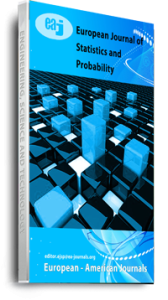In this study we examine the implication of logarithm transformation on the two most popular distributions (Gamma and Weibull) of the error component of the multiplicative error model. The kth moment ( k =1, 2, 3, …) of the logarithm transformed Gamma distribution was established while that of the log-transformed Weibull distribution was found not to be solvable in its closed form hence further investigations were limited to the Gamma distributed error component. The mean of the log-transformed Gamma distribution as required in statistical modeling was found to exist for while its variance exits for . However using simulations the region for successful application of log-transformed distribution was found to be . Furthermore, it was discovered that the log-transform led to a significant reduction of the variance of the distribution, however the expected zero-mean assumption after linearing a multiplicative model with a logarithm transformation is not met even though there were decreases in the mean values after the transformation.
Finally as a result of the findings of this study, we recommend in statistical modeling, that logarithm transformation is not appropriate in a multiplicative error model (with a unit mean error component) for either linearizing or stabilizing the variance of the model or both since it leads to a distribution whose kth moment ( k = 1, 2, 3, . .) is not solvable in a closed form (for the Weibull distrib
Keywords: Gamma Distribution, Logarithm Transformation, Moments, Multiplicative Error Model, Weibull Distribution

